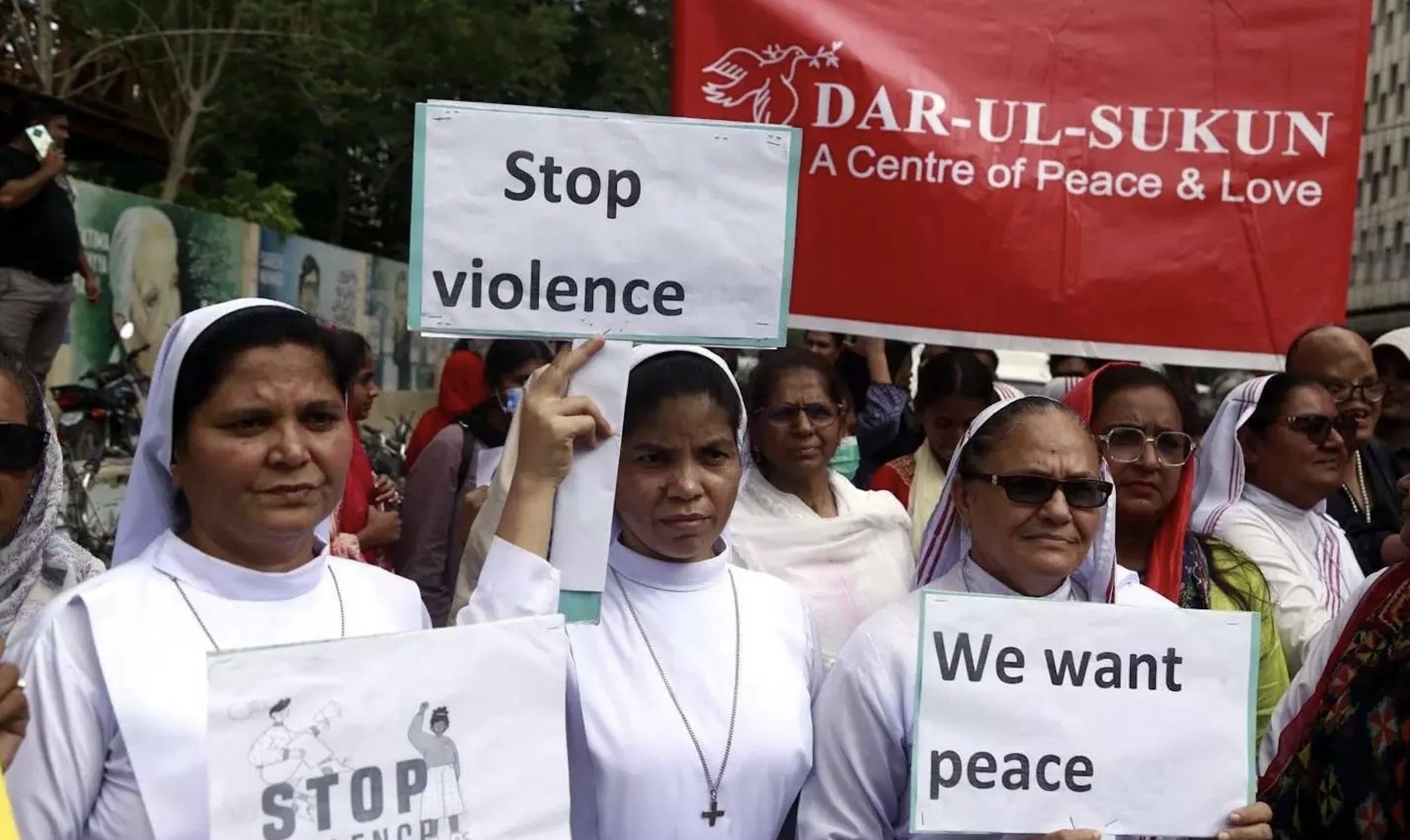
By Web Desk
In 2024, India witnessed a disturbing surge in violence targeting its minority communities, particularly Muslims, Christians, and Dalits. The incidents of hate crimes, mob lynchings, assaults, and systemic discrimination have raised serious concerns about the state of communal harmony in the country, particularly as the Lok Sabha General Elections approached.
The most visible aspect of this surge was the targeted violence against Muslims, which spiked in several states. The months of January and February saw incidents that underscored the escalating communal tensions.
In Uttar Pradesh, confrontations over the Azan near a historic mosque led to arrests, while in Karnataka and Gujarat, Muslims were physically assaulted and subjected to economic boycotts. In Telangana, right-wing groups attempted to construct a temple on Waqf property and conducted provocative rallies near mosques, leading to clashes. Further reports of bulldozer actions targeting Muslim-owned properties in various regions highlighted the vulnerability of the community.
This pattern of violence against Muslims continued into February, with incidents in Mumbai, Indore, and Rajasthan. In Mumbai, a Muslim family was assaulted by a mob and forced to chant religious slogans. In Indore, a Muslim youth was attacked for allegedly proposing to a Hindu woman, while in Rajasthan, 12 Muslim homes were demolished over accusations of cow slaughter. The violence extended to other regions as well, with Maharashtra seeing a rise in incidents, including stone-pelting at a state transport bus over disputes concerning loudspeaker usage near a temple. The tragic suicide of a 15-year-old Muslim student in Akola, allegedly due to abuse by school authorities, added to the growing sense of insecurity among the Muslim community.
As the year progressed, incidents of communal violence persisted across the country. In March, Holi celebrations turned violent in several regions, with slogans and symbols aimed at targeting Muslims. In Maharashtra’s Beed district, a mosque wall was defaced with religious slogans, while in Uttar Pradesh’s Bijnor, a Muslim family faced harassment. The tension was further exacerbated by political leaders’ inflammatory rhetoric, with BJP leaders like Prime Minister Narendra Modi and Union Home Minister Amit Shah making controversial remarks targeting Muslims during election campaigns.
April saw political leaders’ speeches further stoking communal divides. Several BJP leaders made remarks that painted Muslims as outsiders, while others promised to revoke reservations for the community. These statements fed into the ongoing tensions, leading to protests and public unrest. The violence continued in May, when a Muslim cattle trader was assaulted in Karnataka, and a journalist mistaken for being Muslim was beaten at an election rally. The desecration of a dargah in Ahmedabad and the ongoing spread of hate speech on social media platforms added fuel to the fire, particularly during election campaigns.
This story was originally published in madhyamamonline.com. Read the full story here.

